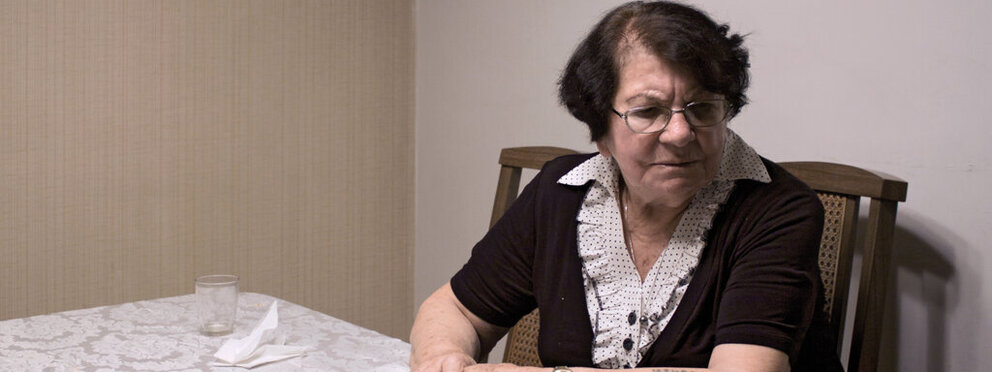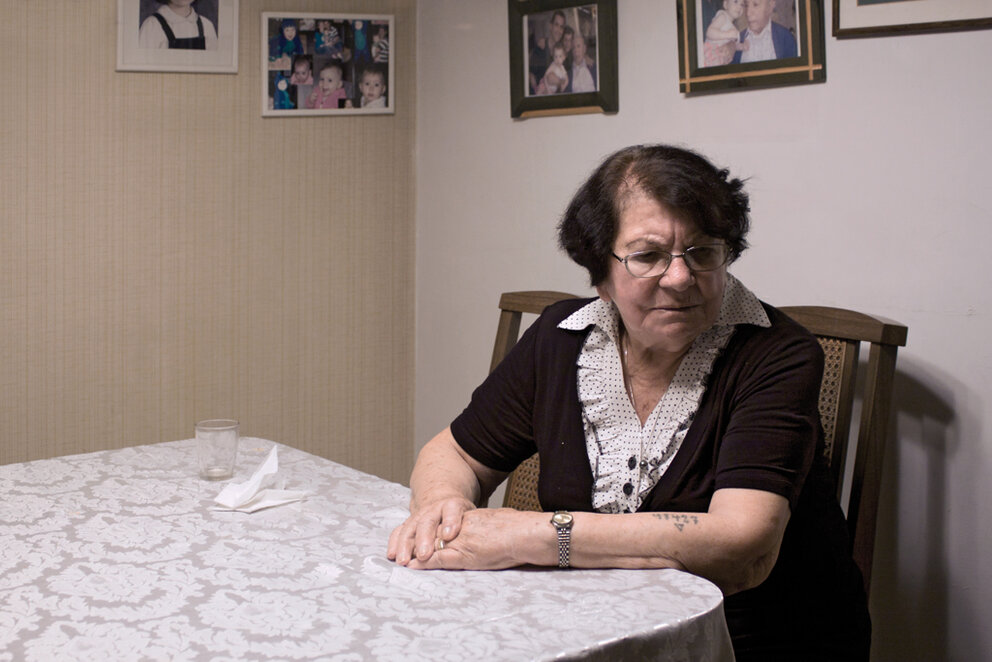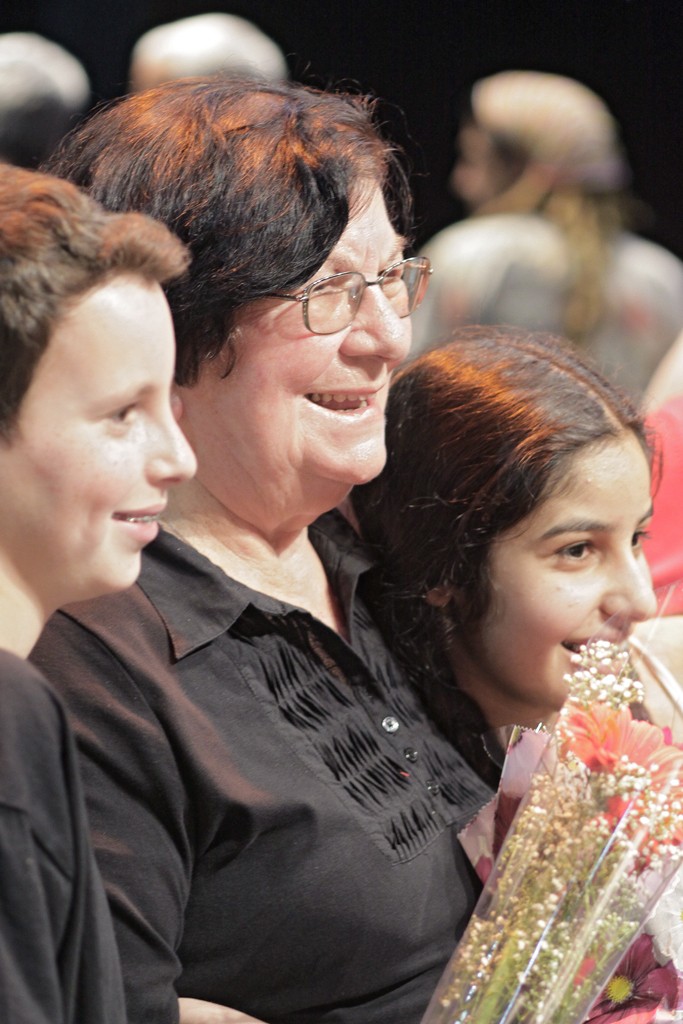
Frieda Kliger
About Frieda Kliger
Frieda Kliger's story is one that is hard to believe. Born in Poland, she initially lived with her family in the Warsaw ghetto. Thanks to her work permit, she was allowed to work outside, but when the ghetto was liquidated, she crossed the death strip without thinking to stay with her family. Miraculously, nothing happened to her and even when her hiding place was discovered, she was deported and sent to the crematorium, a guard arrived at the last second with orders to fetch 1,000 women for Auschwitz. Even when she wanted to throw herself in front of the electric fence, the guard made her turn back. Frieda's story ends in Bergen-Belsen and that is where her other story begins: She was the first Jewish couple to marry her husband there after the war, and together they went to Israel to start a new life.
»I wanted to die but when he screamed "Run away«, I ran. And I didn´t kill myself, the instinct of life was still stronger than to die. It was meant that I survice.«

A picture to live on
We asked Frieda Kliger: "So you didn't have a home for a long time? When did you feel you had a home again? After the war?" She replied: "It took a long time. Fortunately, there were people who loved me. And nobody had a home. You had to create your own home. When I came to Palestine and we got our first flat, I kissed all the walls. I had my husband and we had our first baby. That's when I started to feel at home."

Our encounter
Our first brief encounter took place at a theatre performance. Frieda was acting out her experiences during the Shoah with other survivors and their grandchildren. At the end of the performance, Frieda was surrounded by friends and relatives - a picture characterised by life, warmth and love.
Over the next few days, Frieda was too physically exhausted from discussing her past to meet again. But thanks to her daughter's encouragement, Frieda finally grew beyond herself and invited me to talk to her.
We talked for over six hours. I had actually expected a rather hesitant, perhaps sceptical encounter. In fact, I was greeted with a smile and a hug, both sides a little unsure. When we had to say goodbye, the story was far from over and there was no light for photos. But that was no longer the point. We said goodbye as intimates and I silently marvelled at how much had changed in the hours of our encounter. Wouldn't I like to be her guest for Purim?
Purim, like our carnival, is a celebration of joy. We talked and ate for too long, so we missed the big parade. But the streets were still full of dressed-up, happy people. We had just been talking about Auschwitz and shortly afterwards we were standing in the street, laughing at a little ladybird happily showing her mother her sweet prey.
Frieda Kliger experienced the incomprehensible and today - perhaps to her own surprise - has the strength to open her heart and make friends. The last sentence of our interview: "Sarah don't cry, I cried enough for all that." describes our intense and emotional time together very well. We spent two days talking, crying and hugging each other at the end. It's hard to put something like that into words.
Author: "Zweitzeugin" Sarah Hüttenberend
